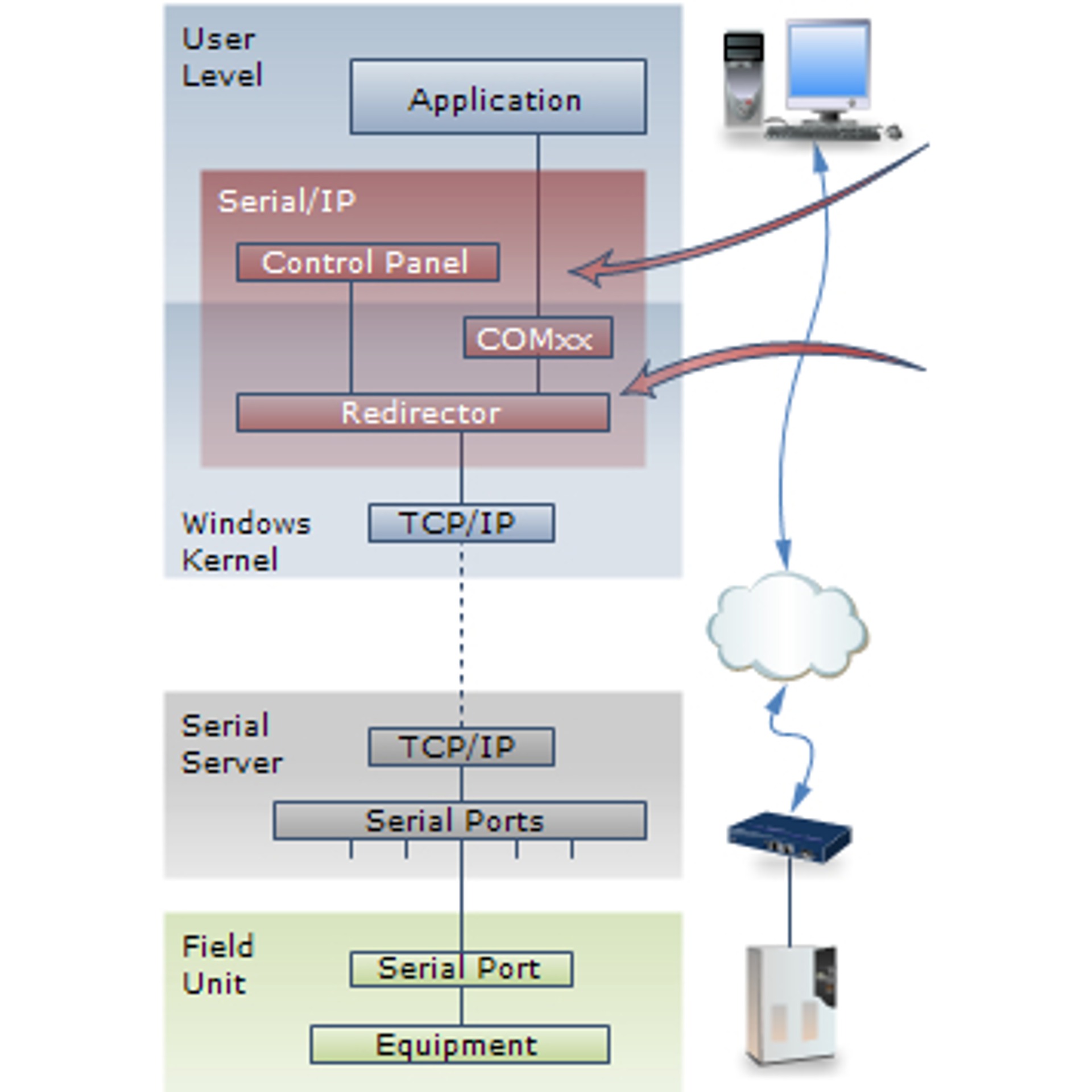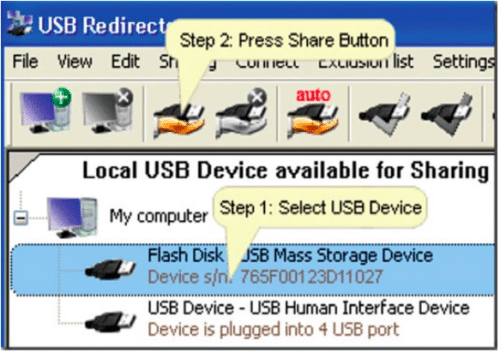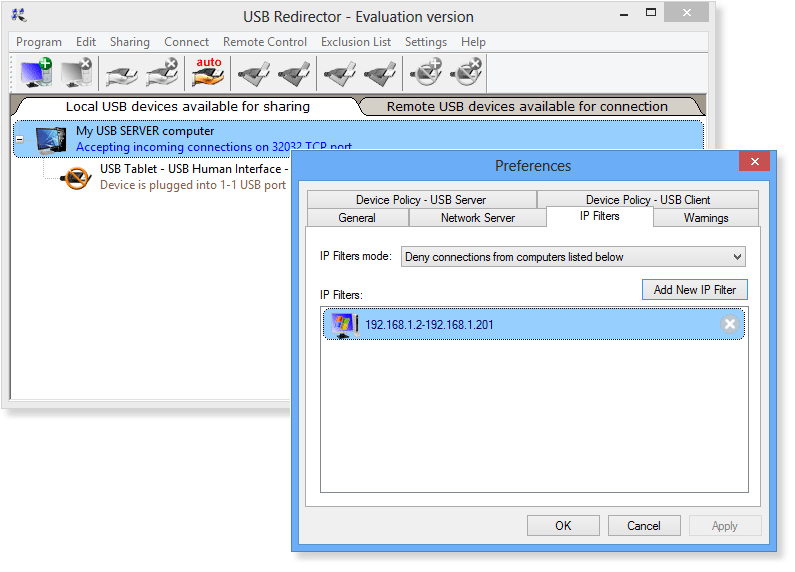



USB PORT REDIRECTOR IP PLUS
Digi AnywhereUSB® Plus lets you readily manage a large volume of USB devices with minimal effort. It allows for flexible methods to test, provision, confirm and resolve any connectivity issues related to scaled deployments of IoT devices. For enterprise and industrial customers who need remote or local USB ports and the higher speeds of USB 3.1 Gen 1 and Gigabit/10 Gigabit Ethernet, Digi AnywhereUSB Plus products give you an industry-leading connectivity solution.ĭigi AnywhereUSB Plus provides a consistent, secure and cost-effective way to verify that your IoT infrastructure is configured correctly and fully operational as it continues to expand. Wi-Fi versions of the 8- and 24-port models are also available, providing Wi-Fi client or access point connectivity.ĭigi AnywhereUSB 24 Plus is rack mountable with 24 USB 3.1 Gen 1 ports, while AnywhereUSB 8 Plus is desktop or rack mountable (with included rack ears) and AnywhereUSB 2 Plus is desktop or panel mountable with eight or two ports, respectively, and support for Gigabit Ethernet. The 24-port models support dual Ethernet or dual SFP+ and optional Ethernet bonding for higher speeds and/or failover redundancy. 8- and 24-port models support 10 GB Ethernet with the option to use SFP+ connectors for fiber network connectivity. Digi AnywhereUSB® Plus remote USB hubs give users the simplest and most direct connection options for existing equipment with a variety of USB 3.1 Gen 1 port options.Īll models have Gigabit Ethernet support. IoT business automation requires communication with various IT assets and peripherals located across an enterprise. Same as option 1: You should be able to connect from your laptop (or any device on the WiFi) to 192.168.1.5:2222 and end up port-forwarded (relayed) to your Raspberry Pi's ssh on port 22.Rapidly deploy, configure, secure and manage devices at any distance Where 192.168.42.55 is your usb0 IP from your Raspberry Pi.
USB PORT REDIRECTOR IP ANDROID
Now to make it all work you would need to use a tool like tcpxd on your Android phone: tcpxd 192.168.1.5:2222 192.168.42.55:22

You need to know the usb0 IP on your Raspberry Pi, once it's connected to USB tethering. Understand that once USB tethering is enabled, your phone will have two active network interfaces: wlan0 (which is your WiFi 192.168.1.x as usual) and usb0 (which is 192.168.42.x). You could forward (relay) the ports at the USB tethering subnet - usually 192.168.42.x, where 192.168.42.129 is your Android phone and the Raspberry Pi will have an interface usb0 with the IP address assigned by the Android's DHCP. But recent Raspbian versions should include a recend adb client. You might need to build adb for Raspbian yourself, which is explained here. Now you should be able to connect from your laptop (or any device on the WiFi) to 192.168.1.5:2222 and end up port-forwarded to your Raspberry Pi's ssh on port 22. Let's say your Android phone has the WiFi IP 192.168.1.5. Run this command on your Raspberry Pi: adb reverse tcp: tcp: where is the TCP port on your android phone and the TCP port on your Raspberry Pi. That should be possible and requires a reverse port forward, which can be setup with adb:


 0 kommentar(er)
0 kommentar(er)
